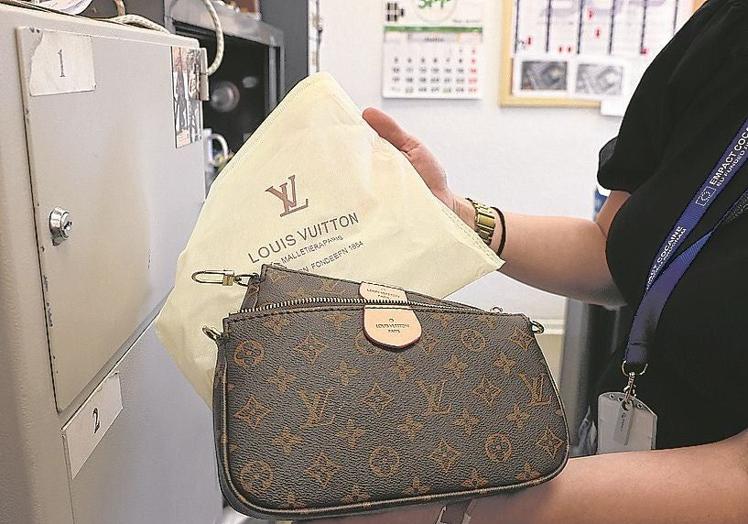The luxury sector is not in its best period. Global uncertainty and the slowdown of the Chinese market, which is one of the main pillars of global consumption, has led the luxury industry to its worst results for years. From Gucci to LVMH in France, all of them are confident that the consumption will increase after a year like 2024, which was dubbed an ‘annus horribleis’.
The conglomerate which includes Dior, Louis Vuitton and Givenchy brands among others, ended the first nine month of the previous financial period with a 2% decline in sales. It is the company’s first major setback since the pandemic. LVMH’s brands have fallen 30% since 2023. The glamour industry is in a state of alarm. Kering’s situation, which is the parent company for Gucci, Balenciaga, Saint Laurent and other brands, is no better. Its first six-month period of the year ended with a 11% decline in revenue. Gucci, the flagship of its brand, saw sales plummet by 20%.
Never before has the luxury industry shone brighter. The exclusive fashion industry still generates enormous fascination despite this disturbing image. Affluent people are blinded to the logos and see them as symbols of distinction. On the other hand, Spaniards who are not able to afford much spend love fakes. Spain is the second most popular country in Europe for buying imitations behind Bulgaria. “Many people are buying copies to gain acceptance in certain social groups,” Silvia Dal-Ben, clinical manager at Unobravo, says. “According a study conducted by the Official College of Psychology of Madrid the consumers of imitations are generally people younger than 35 years old who are seeking a feeling of belonging and a sophisticated image.”
Losses of 5.7 Billion
This illegal practice has a huge economic impact. According to EUIPO, 20 % of Spaniards bought counterfeit products in the past 12 months. This compares to 24 % of Bulgarians. The counterfeiting industry generates losses of nearly 5.7 billion euro per year and destroys almost 45,000 jobs.
Replica bags are increasingly popular.
J. García

The underground market is increasingly hard to shut down. Replica handbags, briefcases, belts, and watches are getting more sophisticated. Even the presentation is faked, so that the customer believes it’s an original watch. They take the trouble to give them serial numbers,” explains José Luis Gómez, chief inspector of Intellectual and Industrial Property crimes of the National Police.
2.5%
Global fashion trade
Fakes are counterfeits. Laura Villanueva is the founder of Psicologodemadrid. She says consumers are looking for status and social recognition, as well as personal validation and integration, with luxury items.
The new consumer of fake luxury is more refined, but also has a different profile. “People who have their own reputational status and who, if they were to wear a good quality counterfeit product, no one would question that what they are wearing is fake,” adds Gómez. This is another. The criminal organisations have adapted their ‘production’ to a client who is looking for “good quality” and who “will pay up to 1,000 euros for a fake Louis Vuitton bag,” says Gómez.
The sale of replicas is often driven from the legal fringes of the business, adds Judit Bussé, a Belgian intellectual property lawyer. “Firms like H&M and Zara look at the collections of prestigious designers and imitate them, but often so quickly that these designs are more likely to be available in the shops of the big chains before those of the designers themselves,” she says. Mango was recently ordered by the Paris Court of Appeal to pay two million euros in damages for “systematic” replicas of Céline pieces, says Bussé.
35
You can also find out more about
The buyers of this genre are fewer than 54%. 54% of people are okay with others wearing counterfeits. 37% say they “wear or would not have a problem wearing” counterfeits.
Influencers, social media and TikTok in particular have become the new enemy of this industry. They are known as “influencers” of fakes or ambassadors of replicas. Generation Z has been captivated by their seductive power after they “proudly show off” the imitations that they purchase online. The display of Alexander McQueen shoes, Moncler jackets, or fake Bottega Veneta handbags by hundreds of young people is a shameless way to encourage people to purchase them via digital platforms. The replicas cost around 200 euros. Authentic garments can range between 500 and 6,00 euros. TikTok has banned “posting, sending and sharing any content that violates copyright”. Therefore, the purchase of these counterfeits is done through hidden links which the protagonists either distribute privately or on Telegram. They have seen a 25% increase in their sales with the help of Chinese fake apps.
False ambassadors of the false
Experts have been surprised at the level of acceptance for counterfeit goods among young people. According to The Business of Fashion and the consultancy McKinsey&Co., 54% of young people “are fine with others wearing fakes” compared to 37% who admit that they “wear or would wear them. The young people are displaying ultra-luxury knockoffs openly, especially handbags. This reflects the significant shift in Generation Z’s attitudes towards brands and consumer behavior,” says Pedro Mir Bernal. The strong social and environment awareness of Generation Z leads them questioning the practices of luxury industries, as they see them as “elitist” and “unsustainable”. The value of authenticity, which is fundamental to these young people is being redefined. It’s no longer about whether the product is authentic, but rather how honest you are in admitting that it’s not.
“Criminal gangs custom-tailor counterfeits for a customer looking for quality”.
In a world increasingly plagued with fake clothes, imitations have existed for a long time. But now they are a “proud” purchase. Were we just witnessing a phase of youth rebellion or the beginning of an era of a revolution? Mir Bernal says that only time will tell. In this situation, influencers and young people are less concerned about purchasing clothes of questionable quality. Mir says that it is important to wear the logo large, even if they are fake.
 Costa News Spain Breaking News | English News in Spain.
Costa News Spain Breaking News | English News in Spain.








